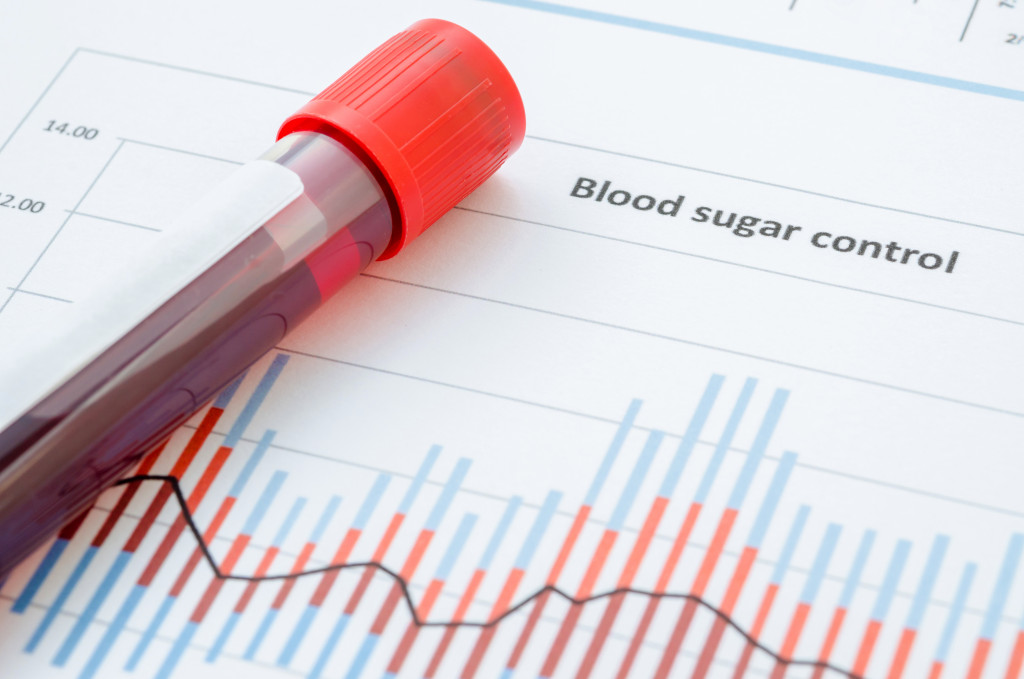- Diabetes affects the body’s ability to fight infections, increasing the risk of gum disease and tooth decay.
- Regular brushing, flossing, and dental checkups can help prevent gum disease.
- High blood sugar levels can also increase the risk of tooth decay due to the attraction of bacteria.
- A dry mouth can occur when enough saliva is not produced or when saliva is thick and sticky.
- Delayed wound healing and oral thrush are other potential complications that can arise with diabetes.
Diabetes is a condition that affects many bodily functions, and the health of your mouth is not an exception. This condition can seriously impact your oral health, and if not addressed with the right care, it can lead to devastating consequences that could have been avoided. Here’s what you need to know about diabetes, how it can affect your oral health, and how to improve your oral health while having diabetes.
The Science Behind Diabetes
Diabetes is a chronic metabolic disorder characterized by high blood glucose levels due to insufficient production or ineffective use of insulin, a hormone that regulates blood sugar. The science behind diabetes involves various physiological processes, including insulin production, glucose metabolism, and insulin resistance.
- Type 1 Diabetes: This form of diabetes is an autoimmune disease in which the immune system mistakenly attacks and destroys the pancreas’s insulin-producing cells (beta cells). As a result, the pancreas produces little to no insulin. Type 1 diabetes typically develops early in life and requires lifelong insulin therapy.
- Type 2 Diabetes: Type 2 diabetes is the most common form, accounting for most diabetes cases. It develops when the body becomes resistant to the effects of insulin or when the pancreas fails to produce enough insulin to meet the body’s demands. Several factors contribute to type 2 diabetes, including genetic predisposition, obesity, sedentary lifestyle, poor diet, and advancing age.
- Gestational Diabetes: This type of diabetes occurs during pregnancy when hormonal changes lead to insulin resistance. It typically resolves after delivery, but women with gestational diabetes have an increased risk of developing type 2 diabetes later in life.
The science behind diabetes involves several key concepts:

Insulin
Insulin is a hormone secreted by the pancreas in response to increased blood glucose levels. It allows glucose to enter cells, which are used for energy production or stored for later use. In type 1 diabetes, the absence of insulin necessitates external insulin administration. In type 2 diabetes, insulin resistance and impaired insulin secretion contribute to elevated blood glucose levels.
Glucose Metabolism
Glucose is a primary energy source for the body’s cells. In diabetes, impaired glucose metabolism occurs due to insufficient insulin or insulin resistance. This results in the buildup of glucose in the bloodstream, leading to hyperglycemia.
Insulin Resistance
Insulin resistance occurs when cells become less responsive to the effects of insulin. This forces the pancreas to produce more insulin to compensate. Over time, the pancreas may fail to maintain sufficient insulin levels, resulting in elevated blood glucose levels.
Complications
Chronic high blood glucose levels in diabetes can lead to long-term complications affecting the eyes, kidneys, nerves, and cardiovascular system. These complications arise from damage to blood vessels and tissues caused by prolonged exposure to high glucose levels.
How Diabetes Can Affect Your Oral Health
There are various ways diabetes can affect your oral health. Here are some of those ways.
Gum Disease
Diabetes affects your body’s ability to fight infections, which could make you more susceptible to gum disease. Gum disease can lead to redness, bleeding, and inflammation. These problems can worsen if you smoke, have a dry mouth, or don’t practice good oral hygiene. Regular brushing and flossing and routine dental checkups can help prevent gum disease. Additionally, always replace missing teeth with robust dental implants. Gaps between your teeth can be a haven for bacteria and viruses, leading to gum disease. Through the use of implants, these gaps can be closed.
Tooth Decay
High blood sugar levels can also increase the risk of tooth decay. When sugar gets into your saliva, it can attract bacteria that build up and create plaque on your teeth. This can lead to cavities, tooth decay, and gum disease without timely intervention.

Dry Mouth
Another complication that can arise with diabetes is dry mouth. This occurs when you don’t produce enough saliva or your saliva is thick and sticky. Without enough saliva to wash away food and bacteria, your mouth becomes a breeding ground for cavities.
Delayed Healing
Diabetes can also cause a delay in wound healing, which could affect any dental procedure. This includes dental implants, extractions, or even a simple filling. This means that a routine procedure could take longer to heal, leaving you at risk for additional complications.
Oral Thrush
With diabetes, you’re at higher risk of developing a mild fungal infection called oral thrush. Symptoms include white, creamy patchy areas on your tongue, gums, and inside your cheeks. This infection can be uncomfortable and lead to serious issues if not treated on time.
Diabetes can affect your oral health in many ways. It is essential to be aware of these potential complications and take the steps necessary to maintain good oral health. Make sure to check your blood sugar levels by following your doctor’s instructions, and take care of your teeth and gums with regular brushing and flossing. Additionally, see your dentist regularly for professional cleanings and check-ups to stay on top of any potential oral health issues. With the proper care, you can keep your mouth healthy while managing diabetes.






